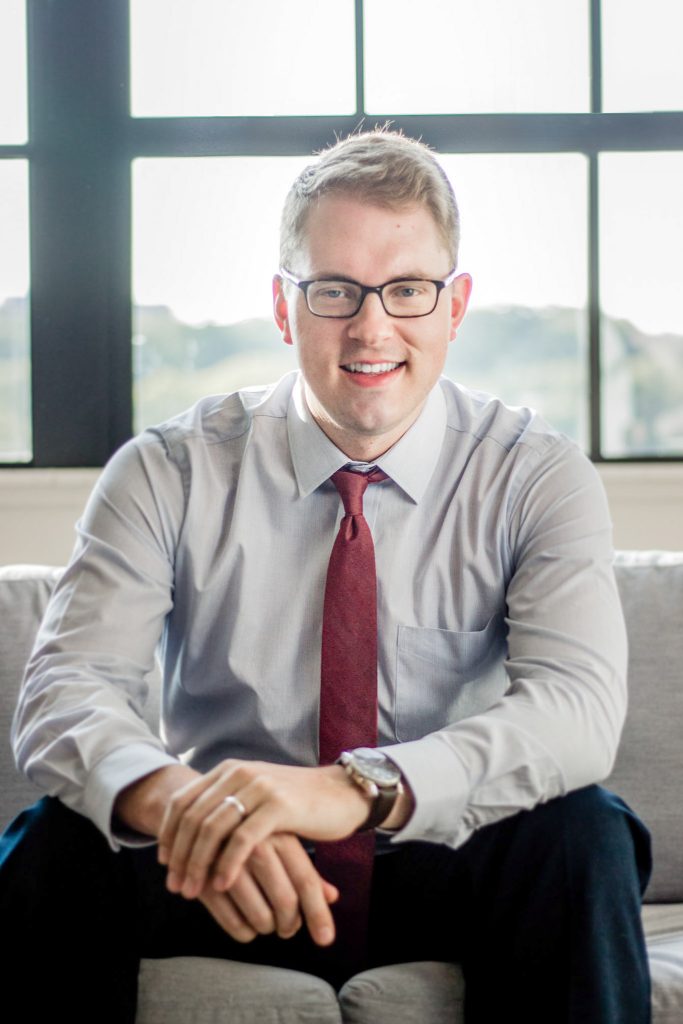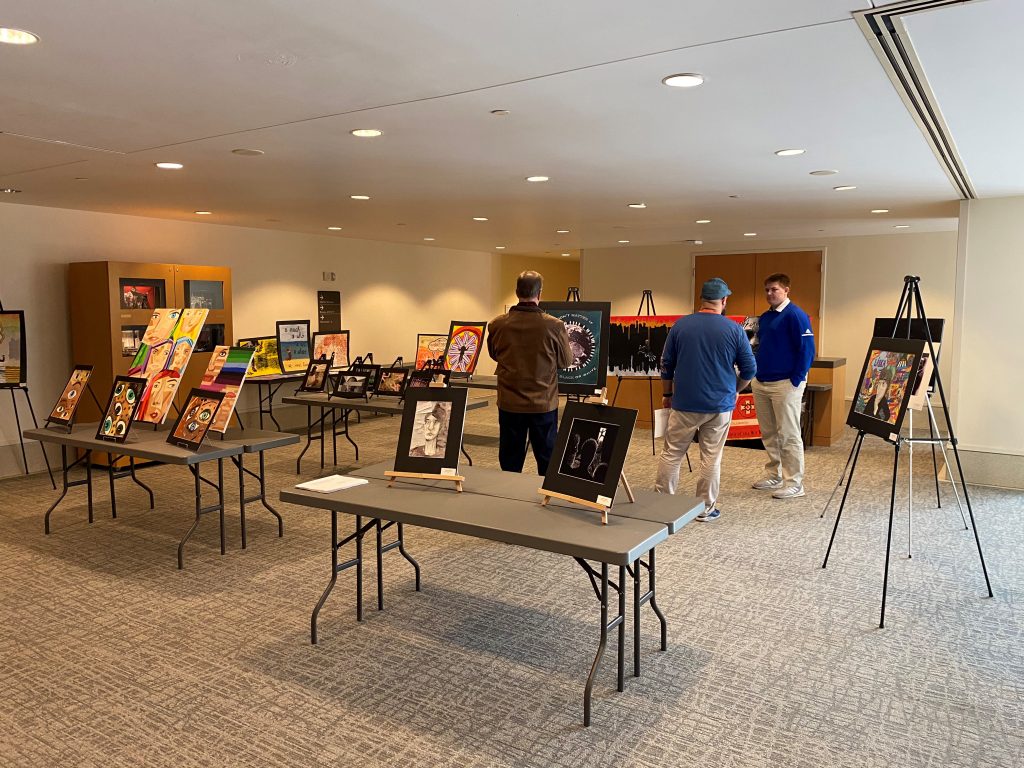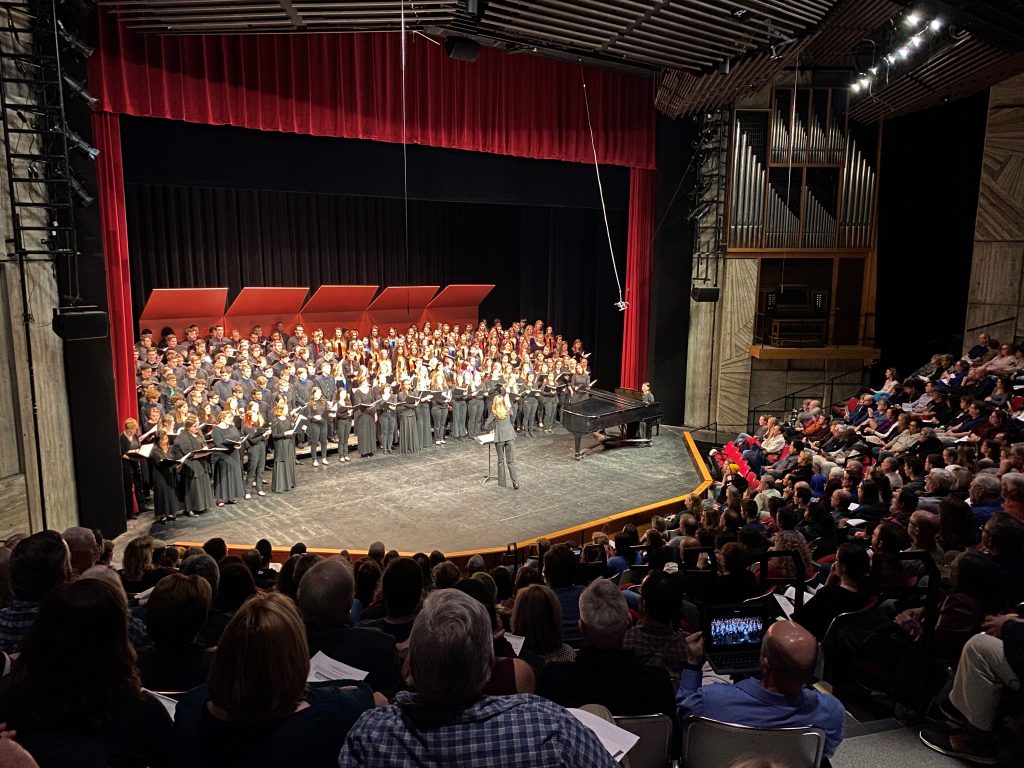
Last year when I blogged about my composition Where the Train Tracks End, I mentioned my Ohio-based colleague, Andy Villemez — the mastermind behind the Creative Commissions Project (CCP). In this blog post, I thought it would be fun to interview Andy and learn more about CCP!
In a nutshell, CCP seeks to bring working composers in direct conversation with music teachers and their students. Each student is paired with a composer who writes a piece based on the student’s current technical and musical abilities, personality, and interests. I was involved with CCP back in 2017 as a composer. I wrote two pieces — one for a student in Durham, NC and another for a student in Columbus, OH.
Let’s have a conversation with Andy to learn more about this project!
Hi, Andy! Would you begin by telling us a little bit about you and your teaching?
Hi, Joy! This is so great – thanks for having me!
The first thing about me that is taking up a lot of mental space right now is being a new father. My daughter was born on New Year’s Day of 2020, and parenthood continues to be an awesome experience. As an educator, I serve as Assistant Professor of Piano and Piano Pedagogy at the University of Cincinnati where I teach most of the piano pedagogy curriculum, as well as other classes in piano literature and keyboard musicianship. I have a small studio of precollege students, too. I really enjoy coaching students through the creative process so all of my students have their hands in composing as well as performing.
When did you first launch your CCP, and what prompted you to do so?
There were two main reasons this project came about. First, private music educators in the Cincinnati area have a lot of options in how to give their students performing opportunities. However, I noticed there weren’t any opportunities that served the needs of students interested in being creative. You had the option of participating in a competition or festival in which you were evaluated, but you couldn’t bring in a composition of your own. If you could bring in your own piece, the evaluator usually would not have anything constructive to say. Second, I wanted to contribute more to the literature of educational music for solo piano – composing and encouraging other composers to create works that had some refreshing new qualities.
So, how exactly does CCP work?
We have run this project slightly differently all three times it has happened, but they all have had the same structure and sequence. The project typically runs every other year. About a year before the project recital, I reach out to a lot of private music educators to see if they have students that would be interested in collaborating with a composer on the creation of a piece just for them. I have also opened up the project to applications from any teacher or student that might be interested, not just the ones I reach out to. Second, I find composers that are willing to work with the students that apply keeping in mind the students’ levels and the composers’ experience. Third, the composers and students have the fall and beginning of winter to sketch, compose, refine, and edit the work. In the spring, the student begins working on the piece in their lessons like a regular piece of repertoire. This would also be when the composer would give a couple coachings on the performance of the piece, as well. Towards the end of the academic year, the project culminates in a premieres recital, showcasing all the original compositions, students, and composers.
[Joy here: Here’s a video of the piece I wrote for a student named Brielle in Durham, NC back in 2017! The sheet music can be purchased here.]
What has been the response to your CCP project?
Really positive each time. There’s something about engaging students in creative ways that gets people excited, and I see that in the students, their parents, and the composers. We’ve had students that have participated multiple times because they enjoyed the experience so much. And I think private teachers love the project because it meets the needs of students interested in being creative without the teachers having to learn a ton of new skills or design an absolutely new curriculum.
What are some of the challenges to organizing and being involved with the CCP?
Funding is usually the biggest problem that I work on from the beginning. How can I raise enough money to pay composers a reasonable commissioning and coaching fee? I have usually found some grant money available, but nothing that continues past a project’s completion. For the second project in 2018, I compiled and edited all the commissioned works into an anthology published and sold through Amazon. This ended up being a great way to raise some money and offer more access to the commissioned works.
How do you hope to expand CCP?
For our third project in 2020, we expanded the impact and focused on connecting composers with pre-college and amateur choirs. Cincinnati has a vibrant choral community, and the premieres recital was a powerful event. We received funding from a grant at CCM that sponsors projects that addresses issues of hate and prejudice in the performing arts. The students in the participating choirs collaborated with the composers on how their work could address an issue close to them. We also expanded into visual art, and several high school art programs participated in the premieres recital by showcasing visual works that responded to issues of hate and prejudice.


Here is a video of piece commissioned for the Cincinnati Youth Choir for the 2020 project.
In the future, I hope CCP can be offered annually in multiple locations around the world. We currently have a fourth project in the works based out of Denver, CO.
How can teachers and composers get involved with CCP, if they are interested?
While we work on setting up an online presence for CCP, anyone interested should feel free to contact me directly at avillemez[AT]gmail.com. CCP also has a Facebook page to follow here.
What else would you like us to know?
If you would like to see this project closer to your home, please let me know! The project continues to expand, and we want to serve the communities that are interested.
Thanks for telling us more about CCP, Andy! I bet my readers would agree that your project is a great idea, and it would be neat to see more teachers, students, and composers involved in the future!

